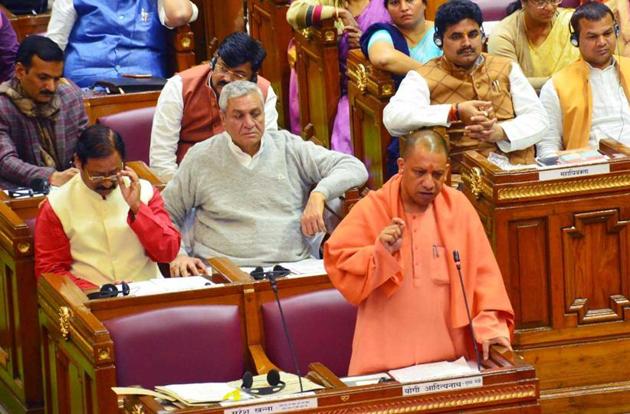Police reform needed more than a new law to check organised crime in Uttar Pradesh: Expert
Expert opinion suggests there is a need to reform the police system instead of enacting a new law to check organised crime in Uttar Pradesh as some of provisions of the Uttar Pradesh Control of Organised Crime Bill 2017 (UPCOCB)have the potential of being misused.
Expert opinion suggests there is a need to reform the police system instead of enacting a new law to check organised crime in Uttar Pradesh as some of provisions of the Uttar Pradesh Control of Organised Crime Bill 2017 (UPCOCB)have the potential of being misused.

AfterChief minister Yogi Adityanath tabled the UPCOCB in the assembly on Wednesday, questions are being raised over the move when a number of laws with nearly similar provisions are there to check crime.
Allahabad high court advocate IB Singh said: “Yes, the government could have moved amendments to Gangsters Act etc to incorporate some more provisions. This bill appears to be a mix of all these laws: the Gangsters Act and the Goonda Act with some provisions for action for harbouring criminals apparently incorporated from the TADA that is no more in existence.”
“Some provisions can be used and misused as well. Instead of enacting a new law there is need to reform the police system,” said Singh.
The definition of abet in the proposed law has led to provisions that may cover the media when covering crime or criminal gangs etc. Singh quoted controversial provisions that define abet: “(a) abet has the meaning assigned to it in the Indian Penal Code, 1860 and with its grammatical variations and cognate expression, includes (i) the communication to or association with any person that facilitates any illegal act with the actual knowledge or having reason to believe that such person is a member of, or is engaged in assisting in any manner, an organised crime syndicate; (ii) the passing on or publication of, without any lawful authority. Any information likely to assist the organised crime syndicate and the passing on or publication of or distribution of any document or matter obtained from the organised crime syndicate; and (iii) the rendering of any assistance, whether financial or otherwise, to the organized crime syndicate.”
For his part, the chief minister in his statement of objects and reasons for introducing the UPCOCB, said: “It has been noticed that organised criminals have been using modern techniques to commit criminal activities. This law would be an indispensable aid for law enforcement and administration of justice.”
Read more: UP CM Yogi Adityanath tables bill to check organised crime
“There is reason to believe that organised criminal activities have been operating in the state and thus there is an immediate need to curb such activities,” he said.
Besides providing death sentence and life imprisonment in murder cases, the UPCOCB has provisions to deal with those harbouring criminals. For harbouring, concealing or attempts to harbour/conceal there will a punishment with a minimum five-year imprisonment extendable to life imprisonment and a minimum fine of Rs 15 lakh. Anybody holding any property obtained from commission of organised crime will get three to 10-year imprisonment and a minimum fine of Rs 1 lakh. Trial of any offence by a special court under the new law will have precedence over the trial of any other case against the accused. It provides for punishment of five years to life imprisonment, along with a fine of Rs 15 lakh, to members of the organised crime syndicate.




